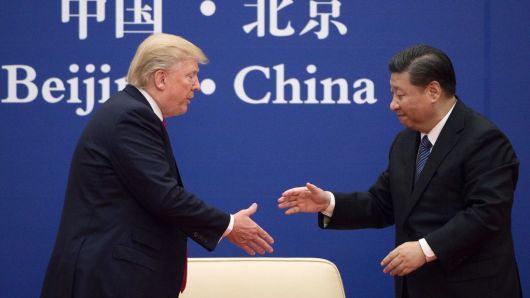
J.P. Morgan is selling European stocks and buying American ones in the wake of Italy’s political crisis.
“The weaker Euro helps Eurozone, but the global investor flows are likely to stay on the sidelines as Italy will remain an issue in the background, with the new populist government being potentially quite confrontational,” Europe-based global equity strategist Mislav Matejka and his team said in a Monday report.
They reduced their rating on euro zone stocks to neutral, from overweight, in a global regional portfolio, and moved the funds to the U.S., raising their allocation to overweight from neutral.
On Friday, Italy swore a populist coalition into power, bringing some closure to political turmoil that hit global markets last week. Earlier in the week, the euro dropped to a low of $1.1506, its lowest since July 2017. The STOXX Europe 600 index fell 1.07 percent last week for a second straight week of declines.
“Within Eurozone, Italy was our top pick in ’17 and entering ’18, but in early May we closed this call, and called to recycle the profits into Germany. We reduce our year end targets for Eurozone by 5%, following the downgrade in GDP forecasts for the year,” Matejka said.
He added that likely delays in monetary policy tightening by the European Central Bank also do not help euro zone stocks, which tend to fall into the “value” category of stocks that benefit more from higher yields.
J.P. Morgan still sees about 12 percent gains ahead this year from Thursday’s close for MSCI Eurozone and 8 percent for MSCI Europe.
The bank’s head of U.S. equity strategy, Dubravko Lakos-Bujas, has a year-end price target of 3,000 for the S&P 500, a roughly 11 percent gain from Thursday’s close. The forecast is the median of targets in CNBC’s Strategist Survey.
The “S&P 500 posted solid gains every time yields rebounded, except during the Fed taper tantrum episode of May ’13,” Matejka said in Tuesday’s report. “The stocks – bonds correlation remains negative, which acts as an automatic valuation cushion in case of equity falls.”
J.P. Morgan expects the Federal Reserve to raise interest rates four times this year. Further growth in corporate earnings also should help U.S. stocks, Matejka said.
The strategist is also overweight Japan but neutral on emerging markets until a better buying opportunity appears.
“We worry that EM might struggle if the USD firms, if Fed surprises on the upside, if the US political agenda moves strongly anti-trade or if China activity slows,” he said. “Also, we believe that Asian Tech might consolidate its dramatic outperformance as it is expensively priced.”
























